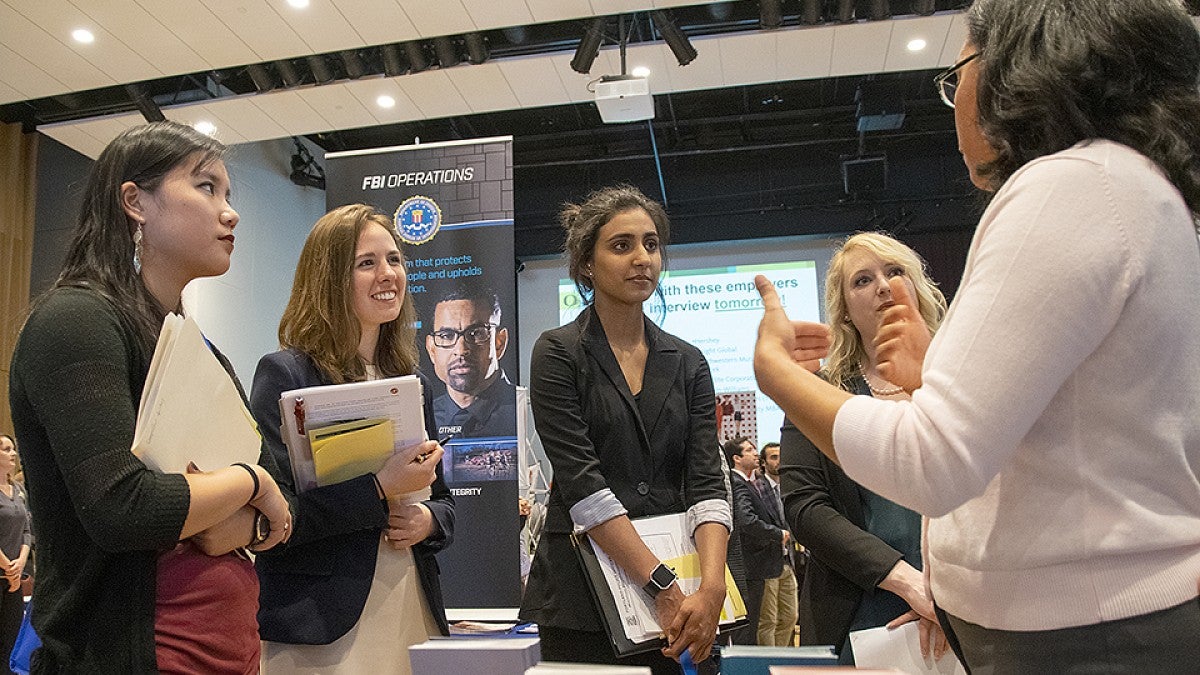The Student Sustainability Center and the University Career Center are organizing a clothing drive to provide students with free professional attire to wear for job interviews and other career-focused events.
Organizers will collect gently used clothing Jan. 20-31, which will be made available to students through the Student Sustainability Center Free Store prior to the Internship and Career Fair in mid-February.
Faculty members and staff are encouraged to donate appropriate items they no longer wear that can be shared with students. Professional clothes and shoes in a range of sizes, colors and styles that are inclusive to students are the most in demand and will give them more access to career-related events on campus.
Purple donation barrels will be located in multiple locations around campus, including:
- Student Sustainability Center, Room 005, Erb Memorial Union.
- University Career Center, Room 50, Tykeson Hall.
- Office of the Dean of Students, Room 185, Oregon Hall.
- School of Journalism and Communication Student Services, Room134, Allen Hall.
- HEDCO lobby.
- Knight Law Center, third floor.
- Lundquist College of Business, Room 350, Lillis Hall.
- Ford Alumni Center.
The Free Store provides students with living essentials like clothes, school supplies and household items at no cost. It’s open weekdays 10 a.m.-4 p.m. throughout the year.
“The goal of this project is to extend the Free Store to offer professional clothing that’s suitable for interviews and professional events,” said Zaida Hatfield, cultural sustainability coordinator and director of the Free Store.
“In this context, the concept of having to spend money to make money is eliminated,” she said. “With contributions from UO faculty, staff and alumni, the program allows students to obtain nice clothing without having to spend out of pocket. Not only are we reducing waste and encouraging community sharing, we are working to eliminate the stigma around second-hand shopping, financial insecurity and the simple need for assistance as college students.”


